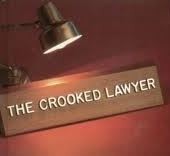St. Petersburg lawyer Dennis Dale Correa convicted of stealing $909,810.77 from clients
Florida Department of Corrections,
The Florida Bar: Dennis Correa resigned, not eligible to practice law in Florida
His brother is attorney John Gerard
Correa of St. Petersburg, according to a woman who answered the law office phone.
Information update, Chapter 960, Florida Statutes
On information and belief, lawyers convicted of crimes are not exempt from making civil restitution under Chapter 960, Florida Statutes, enforced by the Department of Legal Affairs, Crime Victims’ Services Office, and civil restitution liens through civil restitution lien orders, with interest set forth in s. 55.03. Civil restitution liens and civil restitution orders are alternative and supplemental to existing statutory and common-law remedies, and do not bar subsequent civil remedy or recovery. For example,
960.045 Department of Legal Affairs; powers and duties.—It shall be the duty of the department to assist persons who are victims of crime. Read more
960.05 Crime Victims’ Services
Office.—
(1) There is hereby created within the Department of Legal Affairs a Crime Victims’ Services Office, which shall be the organizational unit through which the department exercises its duties and
responsibilities pursuant to this chapter. Read more
960.292 Enforcement of the civil restitution lien through civil restitution lien order.—The civil restitution lien shall be made enforceable by means of a civil restitution lien order. Read more
960.294 Effect of civil
restitution liens. —
(5) RATE OF INTEREST.—A civil restitution lien under this section bears the rate of interest set forth in s. 55.03, from the date of its entry. Read more
960.295 Civil restitution lien supplemental to other forms of restitution available to lienholder.
(1) PRESERVATION OF EXISTING RESTITUTION REMEDIES. The civil restitution lien provided for in this civil restitution lien act is intended to enable crime victims, the state and its local subdivisions, and other aggrieved parties to seek a restitution remedy that is alternative and supplemental to existing statutory and common-law remedies that are available for restitution. The rights of crime victims, the state and its local subdivisions, and other aggrieved parties to seek any existing remedy for restitution, instead of or in addition to seeking a civil restitution lien order under this civil restitution lien act, are preserved. Read more
(2) APPLICABILITY OF OTHER CIVIL REMEDIES; ESTOPPEL AS A LIMITATION UPON ENFORCEMENT.—A civil restitution lien order entered under this civil restitution lien act does not bar any subsequent civil remedy or recovery, but the amount of such restitution must be set off against any subsequent independent civil recovery. Read more
Mrs. Myrtle Trembley - Aunt Myrtle
Myrtle Trembley was an unlikely movie star. She appeared in Ron Howard's 1985 film Cocoon, the Academy-award winning science fiction film about a group of elderly people who are rejuvenated by aliens. Myrtle was an extra in scenes shot at the retirement community Westminster Shores where the film's rejuvenated retirees lived. Aunt Myrtle was a senior citizen and real-life resident of the retirement community when the film was made. The film’s 25th year reunion was held October 19, 2010, but Aunt Myrtle did not attend, she passed away in 1992.
In real life Aunt Myrtle met an alien life form that stole her nest egg, a St. Petersburg, Florida lawyer named Dennis Dale Correa. She trusted Correa completely, said Mrs. Trembley's sister-in-law, Rosemary Dent. "He was like a god to her." Correa returned that faith by stealing $391,000 from Mrs. Trembley's savings, and more than $500,000 from six other estates.
During an interview in March 2011, nephew Chip Dent described a time when Aunt Myrtle broke her ankle, and rather than go to the doctor to have it set, she forwent
medical treatment in order to save money, a reflection of the hardscrabble life of Embreeville, Tennessee, the tiny mountain town where Aunt Myrtle was born in 1902. She lived the rest of her life
with a limp.
Aunt Myrtle left Tennessee and prospered in Pennsylvania. She met and married her husband Paul Trembley. She was a graduate of the Bloomsburg (PA) Normal School (now Bloomsburg University of Pennsylvania), and was a stenographer for 33 years at York's Silk Mill, back when America had a
thriving textile and garment industry.
Aunt Myrtle moved to St. Petersburg in 1954 with her husband Paul. They owned a nursing home, and the Chrysler Apartments, and were members of Christ United Methodist Church. The Trembley’s met Dennis Dale Correa in St. Petersburg during that time. In 1987 Aunt Myrtle moved to Orangeville, PA.
Obituary, St. Petersburg Times
1992, 01-03-92, Myrtle B. Trembley obitu[...]
Adobe Acrobat document [34.6 KB]
How long must Karen Wanich wait?
St. Petersburg Times
by JEFFREY GOOD, Times staff writer
September 11, 1994
Third of four parts
How long must Karen Wanich wait?
Ms. Wanich is a 50-year-old woman with cerebral palsy who uses a wheelchair. When her Aunt Myrtle died, she waited for the inheritance that would help her face old age with more than a government
disability check. The money never came.
When St. Petersburg lawyer Dennis D. Correa was convicted of stealing $900,000 from seven estates and punished only with probation, Ms. Wanich and other beneficiaries waited for Correa to make good
on his promise of speedy repayment. They're still waiting.
Twice trusting, twice betrayed: After seeing lawyers plunder their inheritances, victims of estate rip-offs suffer again when the legal system leaves them
empty-handed.
A judge set Correa free to make restitution, but officials have collected only a pittance. The Florida Bar promises justice through a victim's repayment fund, but fails
to deliver. State law provides for insurance policies to compensate the victims of looted estates, but judges routinely skimp on this important protection.
It's bad enough that Florida law provides so many opportunities for dishonesty in probate estates and living trusts. It's doubly outrageous that when money is taken,
officials forget the victims.
After scraping for decades on a secretary's wage, Myrtle Trembley turned to lawyer Dennis D. Correa for help in leaving a final gift to her niece and other loved ones.
She trusted Correa completely, said Mrs. Trembley's sister-in-law, Rosemary Dent. "He was like a god to her."
Correa returned that faith by stealing $391,000 from Mrs. Trembley's savings, and more than $500,000 from six other estates. On Nov. 8, he stood before Pinellas Circuit
Judge Claire Luten to admit his guilt and plead for mercy.
Correa didn't come to court alone. An impressive parade of supporters filled the courtroom with talk of remorse and restitution.
Correa's therapist said the lawyer felt deep sorrow and had "worked really hard in therapy." A financial planner talked of giving Correa a job with a potential
"six-figure income" that could help quickly repay victims. Banking scion Hubert Rutland III pledged "my personal financial support."
Finally, there was Correa himself. He declared, "I will repay these people."
Judge Luten has slapped other rip-off artists with long prison terms. In this case, she went easy.
State sentencing guidelines allowed a 7-year prison term, and even Correa's lawyer hoped for no better than two and a half years. But Luten decided instead to release
Correa on probation. She cited his "strong support group," his "sincere remorse," and his "desire to pay restitution."
That was ten months ago. By now, the restitution should be cascading in, right?
Wrong. Correa has paid less than 1 percent of his $910,000 debt. Karen Wanich's share so far totals only $272.
Although Correa technically stole from his deceased clients, it is their beneficiaries who suffer. Take Ms. Wanich. She is forced to rely on her father to make up the
difference between a modest government disability check and her needs for shelter, food and heat in the hard Pennsylvania winter. Bill Wanich does his best, but he worries about what will happen when
he's gone.
"I'm 74 years old," he says. "Who's going to take care of her?"
In stealing Aunt Myrtle's gift, Correa stole Karen Wanich's financial security and her father's peace of mind. Wanich is outraged that the legal system set Correa free
without demanding that he make good on the promise of rapid repayment.
"As I see it, there's no penalty," Wanich said. "It's a joke on the whole legal system."
Correa has his excuses. His lawyer, Shawn Burklin, said Correa can't begin his "six-figure" job until a higher court rules on prosecutors' appeal of Luten's probation
sentence. Correa's prospective employer doesn't want to train him for a job if he might go to prison, Burklin said.
But what of Correa's other resources? Property records show that he and his wife sold their home for $327,000 shortly before Correa's arrest; what happened to the money
from that sale? Burklin promised to answer that question, but never called the Times back. Correa also owned a pleasure boat, which was sold last year for $3,000. Once again, Burklin did not explain
where that money went.
Correa did not answer questions from the Times, but his lawyer said, "He has a great desire to make full restitution."
Correa's desire won't buy Karen Wanich one loaf of bread. Meanwhile, officials are doing little to hold Correa to his promises.
The Department of Corrections, which oversees Correa's probation, has established a "suggested schedule" of restitution that would have Correa paying $3,198 a month.
Although Correa has paid just over one month's worth of that sum, DOC spokeswoman Laura Levings said officials are satisfied: "The guy is making an effort."
The lesson of Correa's case is clear. A lawyer who robs nearly $1-million from vulnerable clients can walk away without a prison term or significant financial penalty.
All he has to do is show up in court with some fancy promises, and then stroll out the courthouse door.
As Correa enjoys his freedom, Karen Wanich waits for justice.
Estate of Denial, Shining Light on the Dark Side of Estate Management
Update: Karen Wanich died several years ago. She only received pennies on the dollar in restitution from Dennis Correa.
The 1995 Pulitzer Prize Winners for Editorial Writing, St. Petersburg
Times, Jeffrey Good
Final Indignities: An Editorial Investigation
Broken Promises
Final Indignities, An Editorial Investigation
St. Petersburg Times, Jeffrey Good
A DIFFERENT KIND OF EDITORIAL
Today and for the next three Sundays, the Times is publishing a different kind of editorial. Final Indignities is an examination of the estate system, based on months of research and writing by editorial staff member Jeffrey Good. It appears on the front page of this section to convey its importance. Floridians should be able to face death trusting the legal system to carry out their last wishes. But we have found that, too often, the trust is broken. We invite you to educate yourselves and join our call for reform.
_____________________________________________________________
Taking Action
St. Petersburg Times
By: Jeffrey Good
September 11, 1994
What Officials Can Do
Problem: Broken promises of repayment.
Solution: A lawyer who steals from an estate is a white-collar grave robber. Any judge who gives an estate thief probation should include restitution as a vital component, setting a firm schedule of
repayment instead of the ""suggested schedule'' now used by the Department of Corrections. Criminal justice officials should keep clever crooks from hiding assets, and throw those who don't pay into
prison. Read more
______________________________________________________________
A License To Steal
St. Petersburg Times
By: Jeffrey Good
August 28, 1994
In Florida, it's perfectly legal to rob an estate. All lawyers and bankers have to do is belly up to the trough our elected representatives built for them. Read more
___________________________________________________________________
Probate Professionals Who Care
St. Petersburg Times
By: Jeffrey Good
August 28, 1994
For many probate professionals, reforming the system won't mean extra work. They're already doing things the right way.
While some judges regard their time in probate court as a long nap, others take seriously their duty to deceased Floridians and grieving heirs. Pinellas-Pasco Circuit Judge Thomas E. Penick Jr. is one who cares. Read more
_______________________________________________________________
Broken Trusts
St. Petersburg Times
from: Final Indignities, An Editorial Investigation
By: Jeffrey Good
September 4, 1994
You've heard the sales pitch: Living trusts are the best way to escape the "horrors of probate." Simply sign a trust and, after you die, every dime of your estate will automatically pass to chosen friends, family and charities.
Sounds wonderful, doesn't it? Too bad it's a lie. Read more
_____________________________________________________________
Taking Action
St. Petersburg Times
By: Jeffrey Good
September 4, 1994
What Officials Can Do
The Florida Bar should expand its crusade against sleazy trust peddlers to include lawyers. Any lawyer who preys on elderly clients should be stopped and, if necessary,
disbarred. Read more
______________________________________________________________
Trust Became A Slush Fund
St. Petersburg Times
By: Jeffrey Good
September 4, 1994
Promoters sell living trusts as a way to pass on an inheritance without sacrificing privacy. What they don't say is that because living trusts have no probate court oversight, their "privacy" opens the door to abuse. Consider the case of the good father and his crooked lawyers. Read more
______________________________________________________________
Forgotten Victims
St. Petersburg Times
from: Final Indignities, An Editorial Investigation
By: Jeffrey Good
September 11, 1994
How long must Karen Wanich wait?
Ms. Wanich is a 50-year-old woman with cerebral palsy who uses a wheelchair. When her Aunt Myrtle died, she waited for the inheritance that would help her face old age with more than a government disability check.
The money never came.
When St. Petersburg lawyer Dennis D. Correa was convicted of stealing $900,000 from seven estates and punished only with probation, Ms. Wanich and other beneficiaries waited for Correa to make good on his promise of speedy repayment.
They're still waiting. Read more
_______________________________________________________________
Taking Action
St. Petersburg Times
By: Jeffrey Good
August 28, 1994
What officials can do
Problem: Timid courts.
Solution: Exercise judicial authority. Judges and other court officials don't just have the power to investigate problems in estates; they have the duty. Read more
________________________________________________________________
The Road To Reform
St. Petersburg Times
from: Final Indignities, An Editorial Investigation
By: Jeffrey Good
September 18, 1994
An 86-year-old man left a gift for his family, only to have it stolen. A crowd of senior citizens sought guidance on living trusts, only to be hoodwinked. The heirs of looted estates heard promises of repayment, only to be forgotten.
These are some of the citizens who trusted Florida's legal system to carry out final wishes. Instead, they suffered a final indignity. Read more
_______________________________________________________________
Lawmakers Take Different Approaches
St. Petersburg Times
By: Jeffrey Good
September 18, 1994
Does Florida need to reform its system for passing wealth between generations? In the Legislature, it depends on whom you ask.
At one end of the spectrum is Rep. John F. Cosgrove, D-Miami. Cosgrove said he will push for reforms that increase protections without piling on red tape. He also wants to throw out the law allowing excessive fees for probate lawyers.
The time for change is now, said Cosgrove. "I don't want to see the Legislature form a study commission to look at this and report back in a year."
By contrast, Sen. John A. Grant Jr., R-Tampa, thinks the Times has exaggerated shortcomings in Florida's estate system. While there are some flaws, he said, there is no need for broad reform.
"To say that the problem is the system because of a few people who disobey the system is ridiculous," said Grant. Nor does the law setting fees for probate lawyers trouble him. Grant said, "I don't think that fees are excessive." Read more
________________________________________________________________
Moving Toward Probate Reform
St. Petersburg Times
from: Final Indignities, An Editorial Investigation
By: Jeffrey Good
December 11, 1994
Too often, Florida's legal system has betrayed the citizens who trust it to carry out their last wishes. That could change soon, if officials seize opportunities to increase protections, reimburse victims and rein in lawyers who mislead vulnerable clients.
More than 140,000 people die here each year, many leaving a final gift to family, friends and charity. While most of their estates are administered honestly, an alarming number are not. Trusted lawyers rob inheritances, while their victims get empty promises of repayment. As the horror stories mount, hucksters exploit the fears of elderly Floridians to sell them risky and expensive probate alternatives. Read more
Jeffrey Good, won a 1995 Pulitzer Prize
Seven Days gets its man: Jeff Good hired as news editor Tom Brown
Sep. 20 2013, 6:36 pm
When news editor Andy Bromage told his boss at Seven Days that he was leaving the paper in July, she immediately turned to Valley News top editor Jeff Good as a
replacement.
Seven Days publisher and co-editor Paula Routly worked on Good for about a month. He said no.
Then Routly launched a national search for someone to lead the news division of the Burlington news, arts and entertainment weekly. In the midst of that process Good had
a change of heart, and Seven Days got its man.
Good, who won a Pulitzer Prize for editorial writing at The St. Petersburg Times (now the Tampa Bay Times), spent the past 13 years at the Lebanon, N.H.-based Valley
News, serving as capital bureau chief, news editor, managing editor and editor. He will remain at the Valley News through Oct. 30 to help in the search for his replacement.
Routly said the hiring will take Seven Days’ news effort to "the next level."
"We’re finding that people are looking to us for local news, and in order to do that we needed someone to focus entirely on news content on all platforms," said Routly,
who’s been acting as news editor since Bromage left. "What I like about Jeff is he has a magazine writer’s sensibilities but has worked at daily newspapers for decades. That (magazine-style writing)
is what we do. But we are also exploring more of a daily presence."
Good said he likes his reporters to employ "old-fashioned shoe leather."
Ethics class led by lawyer who stole from clients
St. Petersburg Times
by David Ballingrud
December 13, 1994
Figuring nobody knows sin like a sinner, St. Petersburg Junior College has hired a former lawyer who stole from his
clients to teach a class on ethics.
Dennis Correa pleaded guilty to five counts of grand theft a year ago, after years of shuffling money from one client account to another in a desperate attempt to
cover up a trail of theft. By the time authorities caught on, more than $900,000 was missing.
"They say you are as sick as your secrets," Correa said at his sentencing. "And I was a very sick man."
But Correa's experiences, and his repentant attitude, qualify him to speak to students about ethics with special insight and impact, said Ed Long, SPJC associate vice
president. "Sharing their experiences with students is a way these people can pay something back to society," Long said.
Correa is teaching one class at the Clearwater campus and has lectured at other ethics classes on other SPJC campuses, Long said. As an adjunct instructor, he is being
paid about $1,700 for a 16-week term ending this month.
The program is called "ROPE," for Restoration of Professional Ethics. Correa is the second participant. The first, another lawyer, is no longer in the
program.
SPJC "has always been on the cutting edge of ethics education," Long said. "We were the first junior college in America to require an ethics course as a graduation
requirement."
Thus far, student evaluations of Correa have been positive, he said.
But not everyone is happy with the arrangement.
Science professor Jerry Smith, a biology instructor at the SPJC Clearwater campus for 20 years, called the situation "an embarrassment to the school."
"When I heard about it, I couldn't believe it. I support the ethics program, but I don't think they need it taught by a convicted felon.
"If they want to hire him and bring him in as a bad example, I have no problem with that. But they've made him a member of the faculty, and that's wrong.
"It's a little like Ted Bundy teaching women a class on personal safety."
Harold Dent said he isn't sure what to make of Correa's appointment. Dent is trustee of the Myrtle Trembley Trust, from which Correa took about $390,000.
"There was only about $60,000 he didn't get," Dent said Monday. "And he's only paid back about $1,600. But if he's sincere, and if it will help pay back the money, I'll
be glad."
Correa said he understands the skepticism.
"I know there are negative feelings toward me," he said, "but I think my story can benefit the community."
For 16 years, Correa built a reputation as a respected trust attorney, overseeing up to $25-million in estates and trusts.
At his sentencing by Pinellas Circuit Judge Claire K. Luten a year ago, a number of well-known people, including SPJC president Carl Kuttler, asked for leniency. Luten not only departed from sentencing guidelines but gave Correa 30 years of
probation, a lighter sentence than even his attorney had suggested.
Correa said Monday he intends to pay back the money he took.
He said his family and church have continued to support him, but finding work has been tough. "It seems every time someone writes an article about me, I lose a job. But
I know that's a consequence of what I did."
He said he would like to continue in the SPJC job but knows he can't count on it. "The program will be reviewed; I will be reviewed. I was told that up
front."
But students need to hear his message, he said.
"Frankly, I think I know good-bad, right and wrong, and yet look how badly I failed. I can show students how these things can happen.
"I stumbled and fell badly, and so I tell the students, catch yourself before you stumble, before you hurt yourself and others." Read more in the below PDF.
Ethics class led by lawyer who stole fro[...]
Adobe Acrobat document [25.1 KB]
What kind of college hires a crooked lawyer to teach ethics? A college run by lawyers.
What kind of college hires a crooked lawyer to teach ethics? St. Petersburg Junior
College, a college run by lawyers. During the time Dennis Correa taught, SPJC was essentially run by lawyers. The college president Carl Kuttler, a lawyer. Dr. Emily Baker, a lawyer, was the Instructor-in-Charge of the
Applied Ethics department; the "Dr." title referred to her Juris Doctor law degree.
The college was proud of its requirement that every student take an ethics class. SPJC self-published the course textbook, Ethics Applied, edited by Richardson &
White, which sold for $55 a copy. The Ethics Applied textbook was a compilation of chapters each written by a different author in a personal opinion style. Editor Michael Richardson did not hold
a college degree. Editor Karen White was a lawyer also known as "Dr. White" based on her Juris Doctor law degree.
The preface to Ethics Applied had endorsements by "Dr. White", "Dr. Kuttler" and "Dr. Baker" without disclosing they were actually lawyers who had not earned a Ph.D.,
M.D. or other doctoral degree. The college claimed the book was used by other schools.
The Florida Bar condoned misuse of the doctor title by lawyers, both in book publishing and teaching. Ordinarily this was prohibited by section 817.567, Florida
Statutes, Making false claims of academic degree or title. The Bar did not find a problem with a convicted felon and former attorney teaching an ethics class either.
Dennis Correa’s sweetheart deal with The Florida Bar
Some notes about Mr. Correa’s petition to resign:
Paragraph 5, "A criminal investigation is pending based upon the matters referenced in paragraph 4 above. No criminal charges are pending." [In fact Dennis Correa was
arrested May 17, 1993; criminal charges were filed with the clerk May 13, 1993]
Paragraph 8. "The Florida Bar has incurred costs during the investigation of the pending disciplinary actions referred to above, as indicated in the Statement of Costs attached hereto. Petitioner
agrees to pay The Florida Bar's costs in the amount of $10,065.82."
Paragraph 11. "The public interest will not be adversely affected by the granting of this Petition and such will not adversely affect the purity of the courts nor hinder the administration of justice
nor the confidence of the public in the legal profession."
Retroactive to January 29, 1993
ORDER, petition to resign granted, June [...]
Adobe Acrobat document [217.5 KB]
Lawyer Can’t Resign from Bar to Avoid Embarrassing Expulsion, 7th Circuit Says
Lawyer Can’t Resign from Bar to Avoid Embarrassing
Expulsion, 7th Circuit Says
ABA Journal Law News Now
by Debra Cassens Weiss
December 14, 2010
A federal appeals court is refusing to allow a disbarred lawyer to resign from the federal bar in an apparent effort to avoid the embarrassment of
expulsion.
The Chicago-based 7th U.S. Circuit Court of Appeals ruled in the case of Lawrence Scott Wick, who was disbarred by the state of Illinois for fraudulently overbilling
clients, Courthouse News Service reports. The court ordered Wick disbarred from the 7th Circuit, but said he can seek
reinstatement if he succeeds in an effort to get the U.S. Supreme Court to overturn his Illinois disbarment.
While the state ethics case was pending, Wick had made repeated requests to withdraw from the federal bar, but they were not acted on because of a clerical
error.
Wick had told the 7th Circuit he wanted to resign because he was closing his law practice, had not had a case before the court in more than a decade, had been allowed to
resign from other bars, and had not been suspended, disbarred or disciplined by any court. "All this was literally true, so far as we know, but it was misleading in view of the pending disciplinary
proceeding," the 7th Circuit said in an opinion by Judge Richard Posner.
"When an attorney is removed from the roll of attorneys admitted to practice before this court, we don't want to leave the impression that the separation was innocent if
in fact it was precipitated by the attorney's wrongdoing," Posner wrote. Read more here
Court documents in Correa’s $909,810.77 theft
1993, 05-17-93, Arrest Affidavit for Den[...]
Adobe Acrobat document [346.3 KB]
1993, 11-05-93, Correa’s Memorandum Law[...]
Adobe Acrobat document [1.5 MB]
Felony Information, Dennis Dale Correa
The Felony Information in State v. Dennis D. Correa filed November 8, 1993 charged the following offenses, by case number and count, by R.M. Lewis, Assistant State
Attorney for the Sixth Judicial Circuit for the State of Florida:
- CRC 93-07005-CFANO, Count 1, Grand Theft, First Degree Felony, from the Myrtle D. Trembly Trust, theft value $100,000 or more.
- CRC 93-07006-CFANO, Count 2, Grand Theft, First Degree Felony, from the Denton and Elizabeth Turner Trust, theft value $100,000 or more.
- CRC 93-07007-CFANO, Count 3, Grand Theft, First Degree Felony, from the Isaac H. Whittaker Trust and the Isabelle Newman Trust and the Furman Thompkins Trust, theft value $100,000 or more.
- CRC 93-07008-CFANO, Count 4, Grand Theft, Second Degree Felony, from the Estate of Mildred Bauer, theft value $20,000 or more.
- CRC 93-07009-CFANO, Count 5, Grand Theft, Second Degree Felony, from the Gladys Hoffman Trust, theft value $20,000 or more.
1993, 11-08-93, Felony Information for D[...]
Adobe Acrobat document [323.4 KB]
1993, 11-08-93, Judgment, Grand Theft, D[...]
Adobe Acrobat document [847.6 KB]
Restitution in the amount of $909,810.77 to the victims, statutory costs waived
1993, 11-08-93, Order of Probation, Judg[...]
Adobe Acrobat document [1.3 MB]
An example of truth stranger than fiction
Thirty-eight (38) letters of support for Dennis Correa
Thirty-eight (38) letters of support for[...]
Adobe Acrobat document [3.2 MB]
Circuit Judge Claire K. Luten sentenced Dennis Correa to probation for stealing $909,810.77, no jail time. The restitution ordered by Luten has not been made.
Dennis Correa plead guilty to five counts of grand theft after years of shuffling money from one client account to another in a desperate attempt to cover up a trail
of theft. By the time authorities caught on, $909,810.77 was missing.
Correa’s five criminal cases in the Sixth Judicial Circuit, Pinellas County, Florida:
CRC 93-07005-CFANO, CRC 93-07006-CFANO
CRC 93-07007-CFANO, CRC 93-07008-CFANO
CRC 93-07009-CFANO
For 16 years, Correa built a reputation as a respected trust attorney, overseeing up to $25-million in estates and trusts. At his sentencing by Pinellas Circuit Judge Claire K. Luten a number of
well-known people, including St. Petersburg Junior College president Carl Kuttler, asked for leniency. Luten not only departed from sentencing guidelines but gave Correa 30 years of probation, a
lighter sentence than even his attorney had suggested.
Letter to Claire Luten, former Pinellas Circuit Judge
January 16, 2012
Letter to former judge, Claire Luten.pdf
Adobe Acrobat document [1.0 MB]
January 13, 2012
2012, 01-13-12, email of Jenny Jolinski,[...]
Adobe Acrobat document [828.5 KB]
November 8, 1993
Felony Information for Dennis Correa, No[...]
Adobe Acrobat document [323.4 KB]
2004, 08-30-04, Motion to Amend Conditio[...]
Adobe Acrobat document [138.0 KB]
2004, 08-31-04, Order GRANTING Motion to[...]
Adobe Acrobat document [104.9 KB]
2008, 07-01-08, Order Approving Report o[...]
Adobe Acrobat document [194.0 KB]
2008, 10-23-08, Affidavit Violation of P[...]
Adobe Acrobat document [393.6 KB]
2009, 01-07-09, Motion to Convert Remain[...]
Adobe Acrobat document [385.5 KB]
2009, 05-28-09, Order of Modification of[...]
Adobe Acrobat document [67.3 KB]
2009, 05-28-09, Order Dismissing Violati[...]
Adobe Acrobat document [241.5 KB]
Thereforeafter on an Annual Basis, July 14, 2009
2009, 07-14-09, Motion for Financial Obl[...]
Adobe Acrobat document [115.0 KB]
2009, 08-04-09, Order on Financial Oblig[...]
Adobe Acrobat document [316.6 KB]
Voice your opinion
Comments
-
Shame on the State of Florida, Judge Claire Luten, probation officers etc. in the case of Dennis Correa SC#273601. If you are elderly, living in the State of Florida, DO NOT PUT YOUR MONEY WHERE THE
JUDICIAL SYSTEM CAN GET THEIR HANDS ON IT. IT WILL BE GONE IN A HEARTBEAT. Our money was not only embezzled by this person but the courts never followed through with his conviction, never spent a day
in prison (5 counts of Grand Theft) and we as Myrtle Trembley's Family are not receiving any restitution. Court order $350/mo. shame, shame, shame on the State of Florida. -
Appreciating the time and energy you put into your blog and in depth information
you present. It's great to come across a blog every once in a while that isn't the same old
rehashed information. Great read! I've saved your site and I'm adding your RSS feeds to my Google account.
FindLaw for legal professionals
Clients’ Security Fund
The Clients' Security Fund was created to help compensate persons who have suffered a loss of money or property due to misappropriation or embezzlement by an attorney.
The Clients' Security Fund began operations in 1967. Florida lawyers developed the program which is funded solely by a portion of the annual dues of each member of The Florida Bar.
Rules Regulating The Florida Bar, Chapter 7, Clients' Security Fund Rules.
The Florida Bar Journal, Clients’ Security Fund
Annual Reports: Clients' Security Fund
The Florida Bar Journal
by Warren Jay Stamm
July/August, 2010
Volume 84, No. 7, Page 64
Clients’ Security Fund
It is with great pride and privilege that I submit this annual report on behalf of the Clients’ Security Fund. By way of background, The Florida Bar Clients’ Security
Fund (CSF) was established to reimburse clients who have suffered a loss of their money as a result of misappropriation, embezzlement, or other wrongful taking or conversion by a member of The
Florida Bar in the course of an attorney-client relationship. The Clients’ Security Fund is currently financed by $25 of every Bar member’s annual dues and has over $2.1 million budgeted for fiscal
year 09-10 to pay claims. The maximum payable on any misappropriation claim is $250,000. The fund also reimburses clients up to $2,500 for legal fees when the attorney fails to provide any useful
services. In the last fiscal year, the fund received 439 claims and paid out more than $1.6 million on claims. As of the date of this report, the fund has received 469 new claims for this fiscal year
and approved losses in excess of $1.9 million. Fee claims are paid as approved, whereas misappropriation claims are paid on a pro rata basis at the end of the fiscal year. Since its inception, the
Clients’ Security Fund has paid out over $21 million dollars to over 8,300 claimants.
Procedurally, claims are filed in writing by the former client, reviewed by Bar staff and, when appropriate, referred to a member of the committee for investigation. The
2009-10 committee is made up of 27 attorneys appointed from all regions of Florida by the Bar’s president. The committee formally meets four times during the year, but is actively engaged in the
review and investigation of claims and participates in interim meetings. Although committee meetings are confidential, final action on claims is subject to limited disclosure. Committee
recommendations are submitted to the Board of Governors for final consideration.
While we often do not know the reason for an attorney’s dishonesty, regardless of the reason, defalcations by attorneys profoundly damage the public trust in members of
the Bar and the legal system. Too often, the image of the entire legal profession is tarnished by the acts of a few members. However, we are an integrated Bar and one of the most active in the
nation. Given the size of our membership, I must point out that claims are made against less than one-half of one percent of Florida lawyers. The work of the Clients’ Security Fund is an integral
part of the disciplinary and regulatory process of the Bar and provides a vehicle of recovery and mitigation of losses to clients and the public whose trust and confidence in the attorney has been
impacted. The work of the committee is but one way to address the dishonesty and fractured trust of an errant lawyer. The fund is but one more way in which the Bar strives to improve the public’s
perception of the Bar as a whole and to restore confidence in the profession.
My tenure as a member of the Clients’ Security Fund and the privilege of serving as chair has been both personally and professionally rewarding. I am reminded of the
preamble to admission to The Florida Bar, which provides in part that the ability to practice law is not a right, but rather a privilege which is revocable for cause. The Clients’ Security Fund,
along with all of the other committees and sections, are truly the backbone of our Bar and profession and service to the Bar is but one more privilege that a member can have.
I must also take this opportunity not only to extend my thanks to our diligent committee members, but especially to the Bar’s staff, who support the committee with
tireless commitment. They are Lori S. Holcomb, CSF director, Patricia J. Osborne, CSF coordinator, and Stacey Thrash, CSF clerk. You all are the best!
Warren Jay Stamm, Chair
Request to Warren Jay Stamm; No Response
Email sent March 02, 2011 1:07 AM
Dear Mr. Stamm,
I enjoyed reading your Annual Report for the Clients’ Security Fund in the July/August, 2010 edition of the Florida Bar Journal. This sentence caught my attention:
"Although committee meetings are confidential, final action on claims is subject to limited disclosure."
Recently I requested limited disclosure on final actions in claims to the fund due to the theft of $909,810.77 by Dennis Dale Correa in 1993 and earlier. Lori S. Holcomb
confirmed in an email recently "In fact, 4 clients made claims in a timely manner" but refused to provide the names or amounts of the claims. I made a records request under Rule 7-5.1(b) but Ms.
Holcomb replied
"Information regarding the claimants is confidential. The Bar's retention policy for CSF claims is 3 years from the date of closing."
It appears Ms. Holcomb’s statements contradict your story in the Journal. Below is a list of Mr. Correa’s crimes and victims.
- CRC 93-07005-CFANO, Count 1, theft from the Myrtle D. Trembly Trust, $100,000+
- CRC 93-07006-CFANO, Count 2, theft from the Denton and Elizabeth Turner Trust, $100,000+
- CRC 93-07007-CFANO, Count 3, theft from the Isaac H. Whittaker Trust and the Isabelle Newman Trust and the Furman Thompkins Trust, $100,000
- CRC 93-07008-CFANO, Count 4, theft from the Estate of Mildred Bauer, $20,000+
- CRC 93-07009-CFANO, Count 5, theft from the Gladys Hoffman Trust, $20,000+
The heirs to the Myrtle D. Trembly Trust indicate that they were not aware of the Clients’ Security Fund. Mr. Correa stole $391,000 from the Trembly Trust, his largest
victim.
The heirs to the Trembly Trust live in Pennsylvania. One heir was disabled, Karin Wanich, but she died a few years ago and received just pennies on the dollar in
restitution. Others heirs are elderly and not in a position to know or understand the Bar’s rules. I believe the Florida Bar should have informed the Trembly Trust victims about the Clients' Security
Fund. Insofar as they were disabled or elderly, they may have rights under chapter 825, Florida Statutes, Abuse, Neglect, and Exploitation of Elderly Persons and Disabled Adults.
Mr. Correa was not disbarred. May 13, 1993 Mr. Correa submitted a petition for leave to resign from the Florida Bar, retroactive to January 29, 1993, with leave to seek
readmission after five (5) years (see attached with Order of June 17, 1993). Also on May 13, 1993 the above cited criminal charges were filed with the Pinellas County Clerk of Court (see attaced).
Mr. Correa’s petition contained material false statements, including:
Paragraph 4 of the petition states that "while acting as attorney and or trustee, misappropriated at least $350,000 from one trust and misappropriated funds from other
trusts" This amount is far short of the actual theft, $909,810.77 which is concealed by the wording of the document.
Paragraph 5 states "A criminal investigation is pending based upon the matters referenced in paragraph 4 above. No criminal charges are pending." In fact five counts of
grand theft were filed the same day as the petition, and Mr. Correa was arrested May 17, 1993. (see attached arrest affidavit)
Paragraph 11 states "The public interest will not be adversely affected by the granting of this Petition and such will not adversely affect the purity of the courts nor
hinder the administration of justice nor the confidence of the public in the legal profession." This statement is simply not credible on its face.
Attached you will find an Order by Judge Richard Posner of the US Court of Appeals for the 7th Circuit, IN RE: Lawrence Scott WICK, Case No. No. D-10-0015, holding that
a lawyer cannot resign to avoid the embarrassment of disbarment. The problem with the resignation of Mr. Correa is the Florida Bar’s active collaboration with him to avoid justice in his uncontested
motion to resign. Among other things, the motion was granted effective retroactive to January 29, 1993.
The heirs to the Trembly Trust report that Harold Dent (now deceased) executor, spent considerable sums on lawyers trying to recover money Mr. Correa stole, but was
unable to accomplish much. Now his nephew, Charles H. Dent, Jr., has asked my assistance as an advocate on behalf of the heirs. I work as a volunteer advocate when possible. I do not charge money to
anyone cheated by a lawyer.
Attached is my recent letter to Paul F. Hill, General Counsel. Mr. Hill referred this matter to Ms. Holcomb who has been less than candid. This is a request for the
names and amounts paid out on claims resulting from Mr. Correa’s theft.
You can read more about this matter on my website at http://yousue.org/dennis-dale-correa/
Thank you in advance for your response.
Sincerely,
Neil J. Gillespie
The Justice Network
Evidence, Racketeer Influenced and Corrupt Organization
Mar-02-2011 email to Warren Jay Stamm, C[...]
Adobe Acrobat document [1.7 MB]
The Florida Bar: Evidence of a Racketeer Influenced and Corrupt Organization
The heirs of Myrtle Tremebly in Pennsylvania have waited almost 20 years for restitution of $391,000 from former St. Petersburg lawyer Dennis Dale Correa. Even today
the Florida Bar refuses to provide information about any payment made by the Florida Bar’s Client Security Fund, established for this purpose. The heirs told me they could not get information from
the Florida Bar about why the Bar did not inform them of the Client Security Fund back in 1993 when the theft was discovered.
In a letter and email to Mr. Hill dated February 28, 2011, I asked: "Did any of Mr. Correa's victims receive payment from the Bar's Client's Security Fund? If so, this
is a request for those records pursuant to Rule 7-5.1 (b)."
Lori Holcomb replied the same day on behalf of the Bar and stated "In fact, 4 clients made claims in a timely manner."
Mr. Correa stole almost $1 million from five (5) different clients, so it appears from Ms. Holcomb’s reply that the heirs of Myrtle Tremebly were not notified or
reimbursed by the Florida Bar as to Correa’s theft of $391,000.
In a subsequent email the same day Ms. Holcomb wrote "I am referring your request for the disciplinary records to the correct department.
Information regarding the claimants is confidential. The Bar's retention policy for CSF claims is 3 years from the date of closing."
Nothing I in Rule 7-5.1 (b) states that the Client Security Fund records are confidential. As for the Bar’s retention policy of 3 years from the date of closing, Ms.
Holcomb wrote "In fact, 4 clients made claims in a timely manner." If so there must be current records reflecting Ms. Holcomb’s statement, but the Florida Bar
refuses to provide the information.
The Florida Bar’s refusal to provide the requested information may be a conspiracy to
obstruct justice, and deny honest
services, under the color of law. If so, this is evidence that the Florida Bar operates as a Racketeer Influenced and Corrupt Organization. It is a violation of the public trust, brings discredit to the practice of law, and undermines public confidence in the rule of law, our courts, and system of
governance. Just read the comment left above by an heir of Ms. Tremebly, by Donna D. Farver, Wednesday, September 15 2010 4:31 pm EDT.
Communication with The Florida Bar regarding the Client Security Fund, and theft by former attorney Denise Correa of $391,00 from Ms. Trembley
2010, 09-24-10, NJG to Paul Hill, re Den[...]
Adobe Acrobat document [78.1 KB]
2010, 09-27-10, email, Paul Hill, Counse[...]
Adobe Acrobat document [38.7 KB]
February 28, 2011
2011, 02-28-11, NJG to Paul Hill, re Cor[...]
Adobe Acrobat document [1.3 MB]
February 28, 2011
Feb-28-2011, email, Lori Holcomb, CSF.pd[...]
Adobe Acrobat document [40.8 KB]
On December 15, 2011 Jenny Jolinski of the Florida Bar responded per Rule 2.240 of the Florida Rules of Judicial Administration, by email as follows:
Claimant records related to the Client Security Fund are confidential pursuant to Rule 7-5.1 of the Rules Regulating The Florida Bar.
RULE 7-5.1 ACCESS TO RECORDS
(a) Confidentially. All matters, including, without limitation, claims proceedings (whether transcribed or not), files, preliminary and/or final investigation reports,
correspondence, memoranda, records of investigation, and records of the committee and the board of governors involving claims for reimbursement from committee and the board of governors involving
claims for reimbursement from the client's security fund are property of The Florida Bar and are confidential.
However, according to the Client Security Fund Department, the bar can disclose that the 4 cases referred to above closed on the following dates 5/17/96, 9/8/95,
9/8/95 and 8/9/96. Three claimants received $50,000 and one received $39,750.31, based on the rules in place at the time.
Regards,
Jenny R. Jolinski CRM CDIA+
Records Management
The Florida Bar
651 East Jefferson Street
Tallahassee, FL 32399
850-561-5708
jjolinski@flabar.org
On January 13, 2012 Jenny Jolinski of the Florida Bar responded per Rule 2.240 of the Florida Rules of Judicial Administration, by email as follows:
"Dear Mr. Gillespie,
I am responding to your request of 12/27/2011 for "the rules in place at the time" per rule Rule 2.240 of the Florida Rules of Judicial Administration and other
applicable laws. Pursuant to your request, the 1995 and 1996 Clients' Security Fund regulations regarding payments are attached (see regulation 4).
Please note that the payout amount originally provided by the Clients' Security Fund department was incorrect as the wrong column in the report was reported. The
corrected amounts that were paid out from the fund on behalf of Dennis Correa to the claims referenced in your initial request are as follows: $34,762, $34,732, $34,742, $39,750.30. Pursuant to the
regulations in place at the time, three of the claims were approved in the amount of $50,000 and one claim was approved in the amount of $39,750.30. An initial payment of $10,000 was made upon
approval. The remaining approved amount, $40,000, $40,000, $40,000 and $29,750.30, were pooled with all other excess amounts and paid on a pro rata basis at the end of the fiscal year (see regulation
20).
Regards,
Jenny R. Jolinski CRM CDIA+
Records Management
The Florida Bar
651 East Jefferson Street
Tallahassee, FL 32399
850-561-5708
jjolinski@flabar.org"
January 13, 2012
2012, 01-13-12, email of Jenny Jolinski,[...]
Adobe Acrobat document [828.5 KB]
Life Insurance for Survivors of Attorney Fraud
THE WALL STREET JOURNAL
Companies Profit on Workers' Deaths
Through 'Dead Peasants' Insurance
By ELLEN E. SCHULTZ and THEO FRANCIS
Staff Reporters of
THE WALL STREET JOURNAL
Felipe M. Tillman loved music -- opera, jazz, country. He played keyboards and drums, sang and was choral director at his Tulsa, Okla., church. To make ends meet, he worked at record stores, where "he could be close to the music," says his brother Anthony Tillman. One of those jobs was a brief stint in the early 1990s at a Camelot Music store.
In 1992, Felipe, then 29 years old, died of complications from AIDS. He never bought life insurance, so his family received no death benefit. But CM Holdings Inc., then the parent company of Camelot Music, did. It received $339,302.
Like hundreds of other large companies, CM Holdings took out life-insurance policies on thousands of its employees, with itself as the beneficiary. Most workers covered this way don't know it, nor do their families.
"If someone is going to use your name for something, even though you're an employee of theirs, you should know what's going on in your name," says Anthony Tillman, who was surprised to learn that his brother's death benefited Felipe's onetime employer. "It isn't fair."
The practice is as widespread as it is little-known. Millions of current and former workers at hundreds of large companies are thus worth a great deal to their employers dead, as well as alive, yielding billions of dollars in tax breaks over the years, as well as a steady stream of tax-free death benefits. Nestle USA has policies covering 18,000 workers, Pitney Bowes Inc. has policies covering 23,000, and Procter & Gamble Co. has 15,000 covered workers, spokespeople for these companies confirm.
The coverage is called broad-based insurance, or corporate-owned life insurance, usually shortened to COLI. For years, companies could insure only key personnel deemed essential to the business. But a loosening of state rules in the 1980s allowed for an explosion in a new kind of COLI that covers rank-and-file workers -- known in the insurance industry as janitors insurance or, in at least one instance, dead peasants insurance. "I want a summary sheet that has ... the Dead Peasants in the third column," one of Winn-Dixie Stores Inc.'s insurance consultants wrote in a 1996 memo. Winn-Dixie wouldn't comment on the memo. Read more
WSJ Companies Profit on Worker's Death's[...]
Adobe Acrobat document [168.7 KB]
Survivors of attorney fraud who are entitled to restitution may have an "insurable interest" in the crooked lawyer until restitution is made in full. Such survivors
might purchase insurance equal to the amount of their insurable interest until the crooked lawyer paid the money back. Such survivors would own the policy on the insured lawyer, and
be the beneficiaries of the policy proceeds upon the insured's death.
When an order of restitution is made against a crooked lawyer, a money judgment
should be obtained by the survivors of attorney fraud. The survivors would be the judgment creditor, and the lawyer ordered to make restitution the judgment debtor.
A judgment debtor is a person against whom a judgment ordering him to pay a sum of
money has been obtained and remains unsatisfied. The judgment would then accrue interest at the rate established by state statue. Judgments are often obtained by creditors on debtors, and a crooked
lawyer ordered to make restitution should be no exception.
The cost of such a policy could be justified when a large amount of money is at stake and the survivors of attorney fraud have little expectation that the lawyer will
ever make full restitution. If the crooked lawyer did not make full restitution, as is often the case, the survivors would collect their money as beneficiaries when the lawyer died.
Lawyers and bar associations would likely object to this kind of insurance proposal, but similar insurance has been around for years. Business partners will usually be found to have an insurable
interest for life insurance. Corporate-owned life insurance (COLI) is
life insurance on employees' lives that is owned by the employer corporation, with benefits payable to the corporation or the employee's heirs. According to the Law360.com, Walmart has been secretly taking out life insurance
policies on its employees and cashing them in when said employees pass away.
Given the increasing number of lawyers who defraud their clients, insurance seems like a good way for survivors to collect when lawyers fail to make court-ordered
restitution.
Failure of the Florida Bar and the Florida Courts to protect Myrtle Trembley from a crooked lawyer
The Florida Bar and the Florida Courts failed to protect client Myrtle Trembley from her attorney Dennis Correa. Correa admitted stealing $391,000 from Mrs.
Trembley's savings. Correa was convicted on five counts of grand theft by Pinellas Circuit Judge Claire Luten. Correa also took more than $500,000 from six other estates. All together
Florida attorney Dennis Dale Correa stole $909,810.77 from his clients.
The Florida Bar and/or the Florida Courts failed to obtain a money judgment against Correa for funds he admittedly stole from his clients. This is done in almost all cases where one party owes
another money. Correa was ordered to pay restitution but he has only paid back pennies on the dollar.
The Florida Bar and/or the Florida Courts failed to require Correa to pay interest on the money he stole and owed to his former clients. The statutory interest rate is established pursuant to Section
55.03, Florida Statutes. On December 1 of each year, the Florida Chief Financial Officer sets the rate of interest that shall be payable on judgments or decrees for the year beginning January 1. The
interest rate in effect from October 1, 1981 through December 31, 1994 was 12%. Correa was convicted in 1993 when the statutory interest rate was 12%. That was 18 years ago and Correa has not paid
back much of the money he stole.
If a money judgment for $391,000 was obtained, and Correa was required to pay the 12% prevailing statutory interest rate, simple interest on the principal would be
$844,560.00 assuming Correa paid nothing on the principal.
To find the simple interest, multiply 391000 × 0.12 × 18 = $844,560.00
Simple interest calculator, click here
The principal and interest combined would be $1,235,560
Crooked lawyer Dennis Correa stole $391,000 from Myrtle Trembley, but the Florida Bar and the Florida Courts in essence deprived the Myrtle Trembley estate of far
more - all the interest!
Dennis Correa may never be able to repay $391,000 with interest. But a life insurance policy on Dennis Correa benefiting the Myrtle Trembley estate could ensure that when Correa died the money
judgment with interest would be paid.
Confidentiality - Department of Corrections Records
The Florida Department of Corrections, which oversees Dennis Correa's probation, will not release records showing what restitution Correa has made.
This is what Thomas Bride of the Department of Corrections wrote September 7, 2010:
Please be advised that we are in receipt of your request for records on Dennis Correa DC# 273601. Please note that public record request are governed by Florida statute 945.10 which covers
confidentiality of the Florida Department of Corrections records.
Regarding your request for information on the restitution made to the victims, this information falls under this statute which is 945.10 (f)
Please be advised that this information is not a matter of public record and cannot be disclosed.
Sincerely,
Thomas Bride
2010, 09-07-10, email response, Thomas B[...]
Adobe Acrobat document [13.6 KB]
Some Will Rob You With a Six Gun, Some With A Fountain Pen
Official Woody Guthrie website
Some Will Rob You With a Six Gun, Some With A Fountain Pen
Woody Guthrie, Pretty Boy Floyd lyrics
Well, you say that I'm an outlaw,
You say that I'm a thief.
Here's a Christmas dinner
For the families on relief.
Yes, as through this world I've wandered
I've seen lots of funny men;
Some will rob you with a six-gun,
And some with a fountain pen.
And as through your life you travel,
Yes, as through your life you roam,
You won't never see an outlaw
Drive a family from their home.
































































































































































